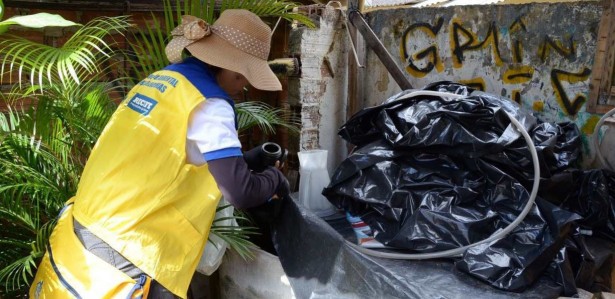Latest Epidemiological Bulletin Arboviruses From the list of the Department of Health Recife (Siesau) 14 live from the city with Extremely high risk of disease spread A disease transmitted by mosquitoes Aedes aegypti: Dengue, Zika and Chikungunya. The information is based on the result of a recent rapid survey of the Aedes aegypti indicator (pound).
Check the list of neighborhoods at very high risk of transmission:
a pound It shows that Ibura, Cohab, Nova Descoberta, Boa Viagem, Brasília Teimosa, Santo Amaro, Várzea, Jordão, Macaxeira, Água Fria, Passarinho, Dois Unidos, Linha do Tiro and Alto José Bonifácio provided Very high risk of infection with the Aedes aegypti mosquito Thus, the transmission of dengue, Zika and chikungunya viruses.
a “Sexually Transmitted Viruses Map”, as LIRAa is called, is an essential tool for mosquito control. Based on the information collected in the survey, health authorities can determine the neighborhoods in which mosquito breeding sites are concentrated, as well as the type of sediment where the larvae were found.
The goal is that, with the completion of the survey, municipalities will be better able to plan actions to control and control Aedes aegypti.
we 14 districts in the city With a very high risk of dengue, Zika and chikungunya outbreaks, LIRAa was greater than or equal to 4.
This is it, at least 4% of the homes visited at these sites had mosquito larvae In containers with standing water.
The result reinforces the need to immediately intensify prevention measures against Dengue, Zika and Chikungunya.
Usually (domestic) water storage is at ground level, such as vat, barrel, trough The main type of educationas well as trash, plastic containers, PET bottles, cans, scrap, construction debris, and vases/bottles with water.
This year, in Recife, until the 36th epidemic week (until September 10), there were 3028 suspected cases of arthropod viruseswith 1,746 cases of dengue, 1,132 of chikungunya and 150 of Zika.
Among these notifications confirmed 642 cases of dengue fever, 506 cases of chikungunya and two cases of Zika.
Compared to the same period in the previous year, there was a decrease of about 89% of reported cases of arboviruses and 95% of confirmed cases of these diseases.
However, a control chart based on the historical series of potential dengue cases shows that the detection rate of potential dengue cases in 2022 is Above the moving average since April.
related to Arbovirus-related deaths This year, two suspected deaths have been reported: one that has been cleared and one that is still under investigation.



![[VÍDEO] Elton John’s final show in the UK has the crowd moving](https://www.lodivalleynews.com/wp-content/uploads/2023/06/Elton-John-1-690x600.jpg)


More Stories
The Director of Ibict receives the Coordinator of CESU-PI – Brazilian Institute for Information in Science and Technology
A doctor who spreads fake news about breast cancer is registered with the CRM of Minas
The program offers scholarships to women in the field of science and technology